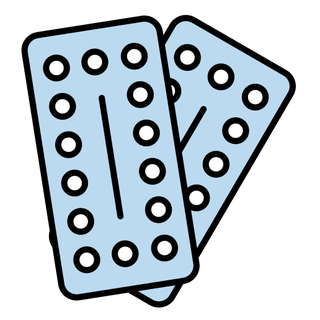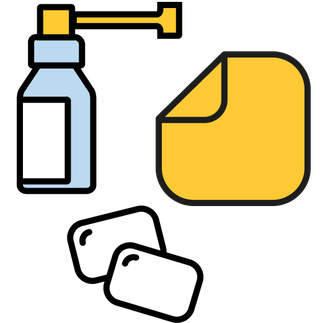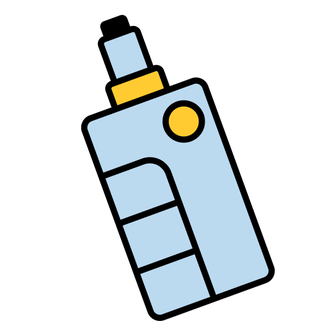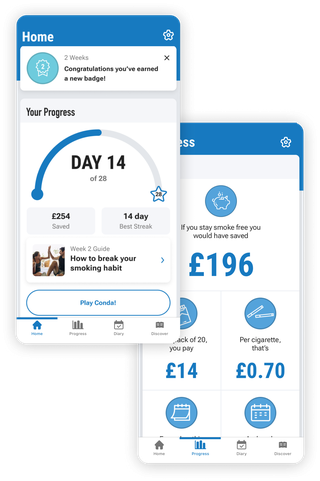Why willpower alone might not be enough to quit smoking
Many people believe they can quit smoking by using willpower alone, but smoking can grab hold of you before you even realise it. That's why stopping is not always that easy.
Find out about addiction, understand your level of dependency on smoking and discover support options to help you quit.
What is addiction?
Addiction means 2 things:
- being physically and mentally dependent on something
- that dependency causing harm
For example, if you need coffee every morning, you might be dependent on caffeine. But since it does not cause harm, it is not really an addiction.
What is dependence?
Dependence happens when someone feels like they need to use a substance regularly, either to feel "normal", or to avoid feeling uncomfortable.
How do you develop a dependence on smoking?
Dependence develops when smoking becomes linked to your daily routines. Your body and mind may start expecting to smoke at certain times, like when you:
- wake up
- go for a walk
- wait for the bus
Because smoking also damages your health in many ways, it’s known as an addiction.
Are you addicted to smoking?
There are some easy questions you can ask yourself to get a better idea of your level of dependence on smoking.
If any of these questions suggest you have a stronger dependence on smoking, then quitting may be harder than you think.
Although willpower is important, getting expert support and using stop smoking products will boost your chances of success.
Did you know?
The younger you are when you start smoking, the more likely it is that you will be dependent on it later in life.
What happens when you quit smoking
Smoking tobacco for many years means your brain gets used to the nicotine hit. This is why you feel like you need to smoke more often to feel good.
When you stop smoking, you may feel:
- a strong urge to smoke
- irritable or restless
- tense or low in mood
These withdrawal symptoms can make quitting feel tough. That's why willpower alone is often not enough.
Research shows that using stop-smoking products and getting expert support can help you stay on track.
Make quitting easier with stop-smoking products
There are many stop-smoking products you can use to help you quit.

Nicotine-free medicines
Some treatments can help you quit smoking by blocking the effects of nicotine in your brain, so smoking feels less enjoyable.
These are called nicotine-free medicines. They can be prescribed by a GP or a local Stop Smoking Service.

Nicotine replacement therapies (NRTs)
Other treatments give your body lower doses of nicotine, in a safer way. Nicotine replacement therapies (NRTs) like patches or gum help with cravings and withdrawal.
For the best results, combine slow-acting and fast-acting NRTs. A slow-acting nicotine patch provides steady relief all day, while fast-acting options like spray, gum, or lozenges help with sudden cravings.

Nicotine Vapes
The routines and rituals of smoking can be hard to stop, but vaping can help you gradually let go of these while reducing the health risks of smoking cigarettes.
Some people find vaping helpful because the hand-to-mouth action is like smoking and gives similar sensations to smoking.
Top tip
Combining nicotine-free medicine, like varenicline, with NRTs makes you over 5 times more likely to quit smoking for good!
Get support
Quitting is much easier with the right support. Expert advisers at your local Stop Smoking Service offer free advice and help.
They can recommend NRTs and give you guidance on vaping. Some can prescribe nicotine-free medicines. These advisers are trained professionals, and many are ex-smokers so they understand the challenges of quitting.
There are lots of other ways to get support too. Explore your support options to find what works best for you.

Download the free NHS Quit Smoking app
Use the NHS Quit Smoking app to help you quit smoking and start breathing more easily.
The app allows you to:
- track your progress
- see how much you're saving
- get daily support
Once you reach 28 days smoke-free, you're much more likely to quit for good!

You can overcome your smoking addiction
When you're dependant on smoking, quitting can be hard. But there are ways to make it easier and you don't have to do it on your own.
There are many proven products that can help you through the tough days, and support can really boost your chances.
Stopping smoking is one of the best things you can do for your health, so don't be afraid to try different ways to reach your goal!

Find the best stop smoking products for you
With so many stop-smoking products available, it can be hard to know where to start. Read our guide to find the best product for you.

